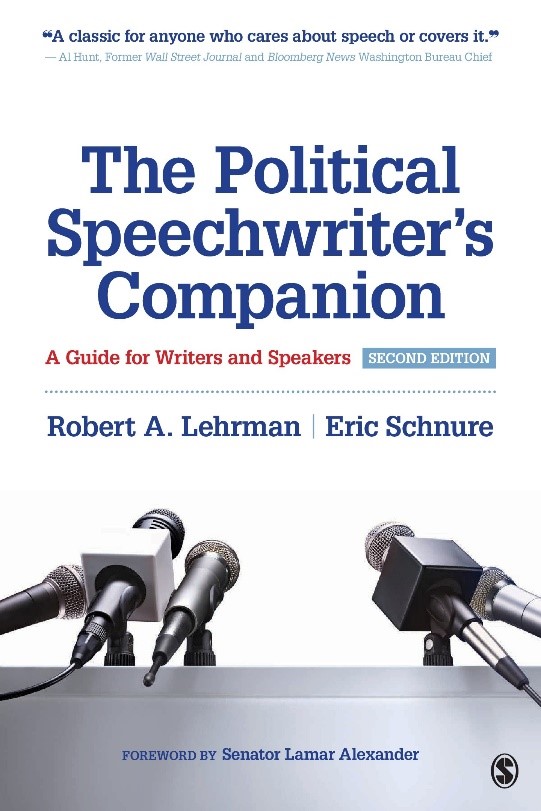Written by Isabelle Gaudeul-Ehrhart,
 The recent EPRS book talk centred on the art and craft of political speechwriting, a subject that aroused a good deal of interest. More than 200 people – MEPs, assistants, and staff of the European Parliament and other institutions – came to listen to one of the authors of ‘The Political Speechwriter’s Companion‘.
The recent EPRS book talk centred on the art and craft of political speechwriting, a subject that aroused a good deal of interest. More than 200 people – MEPs, assistants, and staff of the European Parliament and other institutions – came to listen to one of the authors of ‘The Political Speechwriter’s Companion‘.
Eric Schnure, former speechwriter to Vice-President Al Gore, was in conversation with Gaby Umbach, from the European University Institute, here as moderator, and Isabelle Gaudeul‑Ehrhart, from EPRS, as the discussant.
Gaby Umbach introduced the conversation by framing it within the series of EPRS events and against the historical and current political backdrop. Eric Schnure then shared his experience of what makes a good speech, starting with his own experience of two speeches, one by President Reagan, the other by Vice-President Gore – a speech that would later evolve into the film ‘An inconvenient truth’. Both these speeches grew from a very small, specific element that was then shown to be relevant to everyone. The best speeches are the ones that are meaningful for the audience. Schnure then reflected on the level of the current political debate, in an age of instant communication and soundbites, and warned the audience against being too quick to blame social media.
As the discussant, Isabelle Gaudeul-Ehrhart first questioned whether speech writing and delivery are skills that can be learnt. Having explained that they can, referring to both extracts from the book and to her own experience, she then asked whether these skills are inherently American. Building on the authors’ experience of giving training in Europe, Asia and Africa, and touching on the history of rhetoric in Europe, from Ancient Greece to the present day, she concluded that the discipline is definitely not uniquely American but rather was born in Europe and resonates worldwide. Finally, she explored the reasons for the book’s emphasis on ethics.
Eric Schnure confirmed that, even if certain features can be very American (e.g. inviting a surprise guest to be present in the audience), the art of powerful speeches is universal and is ultimately about how we can relate to each other in society. On ethics, Schnure expressed his view that the sheer volume of lies in current political discourse is unprecedented, but argued, by contrast, that very little work is necessary to show a fallacious argument for what it really is.
Speeches are universal and so is storytelling. Once again, whereas Americans are more prone to telling stories in their speeches, that does not make storytelling an American-only feature. European leaders do tell stories as well and often with much impact.
The conversation included several questions from the audience on recent trends, including on how jokes can be risky whereas wit is reliable, the importance of treating your audience with respect, and the multicultural and multilingual dimensions of speeches at European level. The net result was to reveal a lively interest in a discipline that was born in Europe more than 2 000 years ago and is still very much needed in politics today.
The book talk concluded with a consideration of the relevance of these skills for speakers and speechwriters in the EU, and of this book for the European Parliament and its Research Service.

A recording of the book talk can be found here.










[…] Source Article from https://epthinktank.eu/2019/11/13/eprs-book-talk-the-art-and-craft-of-political-speechwriting/ […]